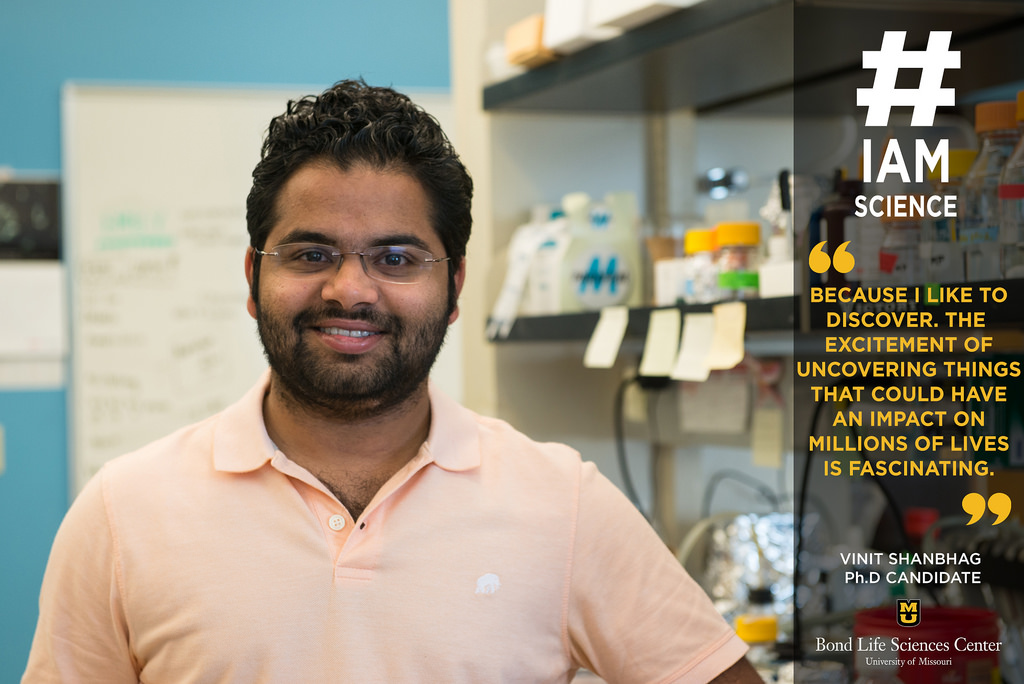Published on

Vinit Shanbhag is a Ph.D. candidate in biochemistry and works in Michael Petris’ lab in Bond LSC. | photo by Allison Scott
By Allison Scott | Bond LSC
“#IAmScience because I like to discover. The excitement of uncovering things that could have an impact on millions of lives is fascinating.”
Vinit Shanbhag isn’t your typical student. His extensive background both overseas in India and at the Florida Institute of Technology serve to prove just that and prepared him for his next adventure at Mizzou.
“When I came here for the on-campus interviews, the department was impressive,” said Shanbhag, who is pursuing a Ph.D. in biochemistry. “The excellent infrastructure, paradigm-shifting research and challenging educational environment influenced my decision to attend MU.”
Shanbhag intentionally joined the lab of Michael Petris at Bond LSC to further his experience.
“I was particularly interested in joining the Petris lab due to my immense interest in cancer research,” Shanbhag said. “That interest has now evolved into an aspiration to pursue a career in the field.”
There he studies how an essential dietary nutrient copper is required for the process of tumor formation and metastasis. In a specific study he has deleted a copper-transporting gene (ATP7a) in cancer cells and demonstrated a defect in their ability to grow into larger tumors and spread to other organs in animals.
“By understanding the mechanisms that regulate key processes in cells, one can distinguish between the normal and diseased,” Shanbhag said. “Uncovering these differences at the molecular level is key to the development of novel clinical interventions.”
Shanbhag’s work has been recognized as he was invited to present his research at the Gordon Research Seminar in Vermont earlier this year. While there, he shared the work he’s been doing in his lab and gave a presentation, in addition to showcasing a poster detailing his work.
“People were impressed,” Shanbhag said. “After my talk people came up and asked me questions. Our observations are very interesting and the goal is to develop a drug that could potentially block the function of ATP7A and inhibit cancer progression. The people I spoke with encouraged us to keep going.”
Although he’s presented at departmental seminars, this recognition stands out as a great experience for Shanbhag.
“This was my first invited talk,” Shanbhag said. “I applied for it and got the news of my invite pretty quickly, so I was excited.”
The hope is that Shanbhag’s research will serve as the premise for further development in understanding and eventually eliminating cancer.
“Ultimately, I hope to discover new ways to kill cancer cells and provide cost-effective treatment options for cancer patients,” Shanbhag said.